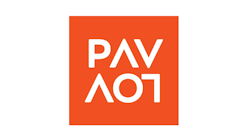Integrating Digital Media into Your Overall Marketing Strategy
Whether you represent a transit agency or business member, you are no doubt exploring opportunities within the digital marketplace to advertise. The options are nearly endless and can be difficult to navigate, and many still wonder what digital marketing is and how it might be used to connect with your customers and prospects in a meaningful way.
A challenge many agencies face today is decreasing ridership and the associated decrease in revenues. With more transportation alternatives and higher service expectations, marketers must stand out to build engagement and ridership. Digital media channels are an efficient and effective method to reach your target where they are, in ways that stand out from traditional advertising.
In this article, we will briefly examine what digital marketing is, what the benefits are to your agency or business, and how you can use it alongside traditional media to connect with, grow and retain your current and former customer base.
What is Digital Marketing?
Digital marketing, at its core, is buying media and reaching customers through digital channels. Digital channels consist of many mediums, but the most widely used include search engines like Google, Yahoo! and Bing; websites like NYTimes.com or Weather.com; social media sites and applications like Facebook or Twitter; and digital television like Hulu or On Demand versions of NBC/FX/HGTV. This is, by no means, a comprehensive list; in fact, each day, more and more platforms, websites and opportunities are built with the purpose of being leveraged for advertising digitally.
Buying media on these platforms is done in a very similar way to traditional media. Strategies are developed, budgets are set, and channels are selected. Channel selection is done based on the target you are trying to reach and the message you want to deliver. In all cases, advertisers who plan digital and traditional media together, see the greatest success. Because digital marketing allows for more real-time optimization (adjusting investment based on success), more custom messaging (due to advanced targeting capabilities), and the ability to reach customers at a critical point in their decision-making process, it can be the most effective tool for driving revenue to your business.
What are Benefits of Digital Marketing?
- Quality vs. Quantity: Media consumption has moved away from quantity into a world of quality. The traditional days of “highest impression count wins” are no more. Customers are demanding that advertisers provide valuable resources and solutions, not more noise in their lives. The digital marketing landscape has leveled the playing field in many ways, specifically in that nearly any agency or business can compete regardless of size or budget as long as a solid digital strategy is in place. A well thought out strategy that includes a smooth customer journey with access to tools and resources, underpinned by great service, can win.
- Efficient Media Spend: Your business can develop a digital marketing strategy at a more cost-effective rate due to increased targeting capabilities and more efficient buying methods. In many cases, the reach is far greater and the costs far lower than some legacy traditional media like yellow pages and radio.
- Timely Results: Digital marketing provides near-real time visibility into what is driving results for your agency or business. This allows marketers to make faster decisions on messaging, channel selection, and media spend; and then, in rapid succession, see the impact these changes have on results.
- Everything is Measurable: Within any digital marketing program, tracking and measurement is a fundamental requirement. Tracking provides marketers with visibility into performance metrics, such as when an ad is seen, by whom, and whether or not it was clicked on. There are various methods of tracking and a variety of partners who provide dashboard views of program results.
These are only a few of the benefits that digital marketing provides, and the good news is that integrating digital into your existing media strategy does not have to be complicated.
In many ways, digital marketing can transform the way customers and prospects engage with a company. However, transitioning entirely to digital can break the relationship you have with some current customers, and additionally, digital may not reach your entire target. This means that digital marketing should be a component of your media buying strategy. Success is greater when all media is unified in strategy and messaging, while delivering a consistent and engaging customer journey. Here are a few ideas to help you move away from the traditional vs. digital mindset and integrate digital into an overall marketing strategy.
- Budget Properly: Begin by carving out 20% of your media budget and dedicate it to digital channels. It can be difficult to completely change your media mix, and 20% towards digital will give you a meaningful enough investment while maintaining your traditional impression volume offline.
- Track for Success: Set up tracking through a reputable 3rd party. Don’t rely solely on general website data or publisher data in campaign wrap-up reports; instead, create your own dashboard of success.
- Set Realistic Goals: At the onset of any media campaign (traditional or digital), success metrics are determined. Set achievable goals, and set multiple. Perhaps you have one major goal: a 2% increase in ridership. Support that with micro goals like click-thru-rate (this is the ratio of users who click on your ad to the total number who saw it), length of time on site (how long someone engaged with your website), or impression volume (how many people saw your brand online).
Digital marketing represents an opportunity to connect with previous, current and future riders on their terms and in a way that drives a dynamic response. With increasing competition in transit and high customer expectations, digital marketing can help your business rise above the noise and provide value to each customer engagement.
Parks Blackwell is the chief operating officer and senior vice president of digital at Fort Worth-based PAVLOV Agency. She can be reached at 817.336.6824, @ParksBlackwell, https://www.linkedin.com/in/parksblackwell/



